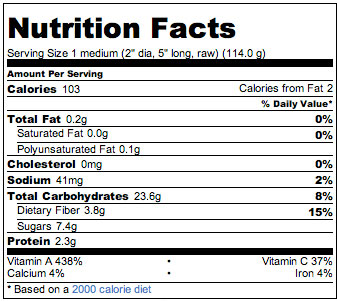Sweet Potatoes are Packed with Vitamins
The Super Tasty Super Food
Nutritionists, scientists and consumers agree that sweet potatoes should play a part of every diet. The nutrition, vitamins, minerals and other health benefits that a serving of sweet potatoes delivers are unmatched by almost any other food. Consider that a single 105-calorie serving of sweet potatoes offers:
- Over 100% of daily requirement of vitamin A
- Over 35% of your daily requirement of vitamin C & manganese
- Over 25% of your daily requirement of potassium & vitamin B6
Sweet potatoes are also rich in fiber, calcium and complex carbohydrates. They are loaded with beta-carotene and antioxidants and have a low glycemic index as well. It’s no surprise that the Center for Science in the Public Interest ranked sweet potatoes #1 in nutritional value of all vegetables.

The Center for Science in the Public Interest (CSPI) ranks the sweet potato as one of the most nutritious vegetables out there. It is also an important source of vitamin B6, iron, potassium and fiber.
Sweet potatoes contain virtually no fat and are low in sodium. They also help to promote a healthy digestive tract and are a substantial source of dietary fiber, especially when eaten with the skin. There is more fiber in one sweet potato than in one bowl of oatmeal.
Fiber can also lower your risk of colon cancer, says Peter Greenwald, MD, director of the division of Cancer Prevention and Control of the National Cancer Institute. Experts believe that fiber may increase bulk in the colon, thereby “diluting” possible cancer promoting substances (carcinogens) that are formed during digestion or found in food.
Other important and beneficial nutrients in sweet potatoes are: Vitamin B6, Vitamin E, Vitamin K, Calcium, Copper, Iron, Folate, and Beta-Carotene. Visit the Center for Nutrition Policy and Promotion website.
Beta-Carotene
Consumption of foods rich in beta-carotene is being recommended by scientists and government organizations such as the National Cancer Institute (NCI), and the United States Department of Agriculture (USDA). Epidemiological studies consistently indicate that as consumption of beta-carotene rich foods increases, the risks of certain cancers (i.e. lung and stomach) and cardio vascular diseases decreases. Visit vitamin-basics.com


